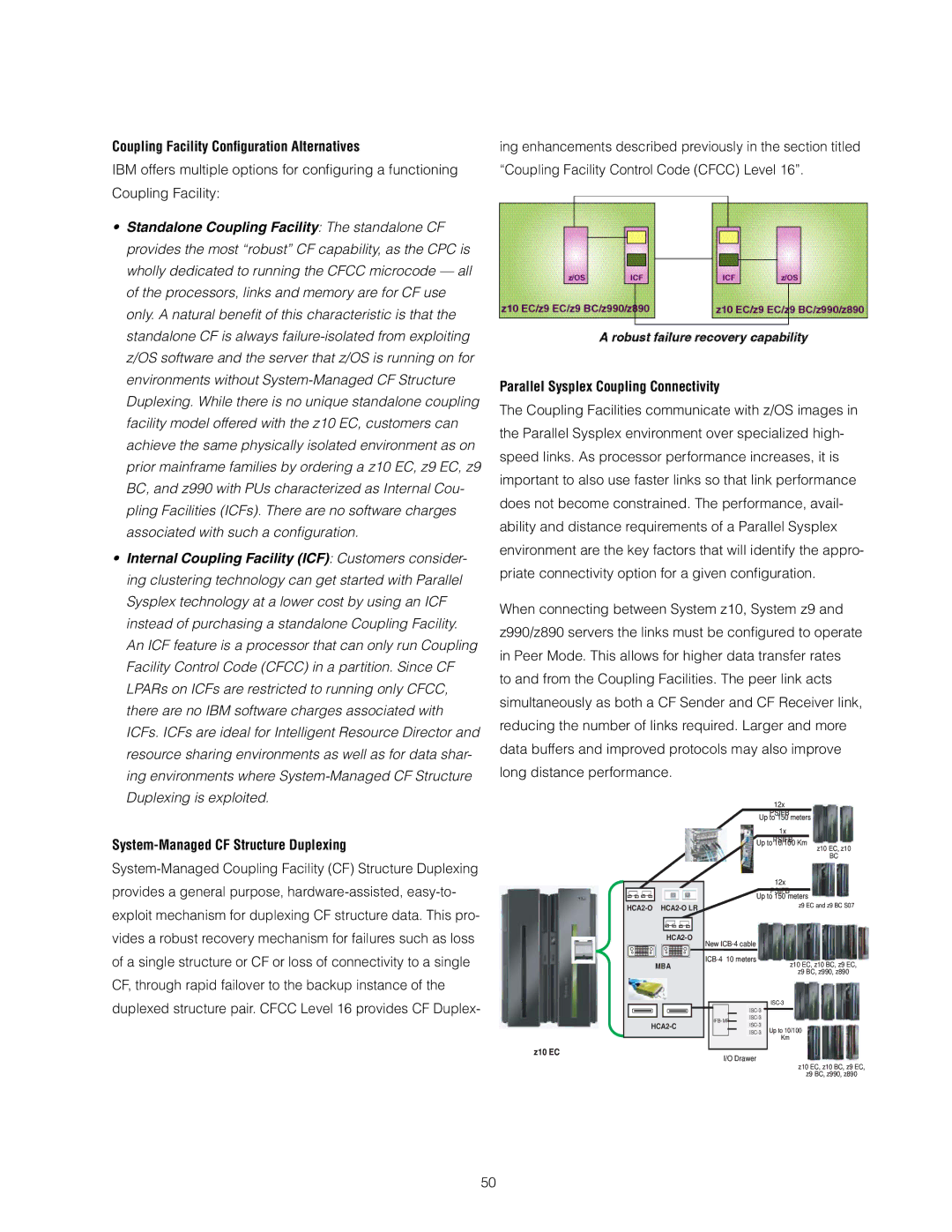
Coupling Facility Configuration Alternatives
IBM offers multiple options for confi guring a functioning Coupling Facility:
•Standalone Coupling Facility: The standalone CF provides the most “robust” CF capability, as the CPC is wholly dedicated to running the CFCC microcode — all of the processors, links and memory are for CF use only. A natural benefi t of this characteristic is that the standalone CF is always
•Internal Coupling Facility (ICF): Customers consider- ing clustering technology can get started with Parallel Sysplex technology at a lower cost by using an ICF instead of purchasing a standalone Coupling Facility. An ICF feature is a processor that can only run Coupling Facility Control Code (CFCC) in a partition. Since CF LPARs on ICFs are restricted to running only CFCC, there are no IBM software charges associated with ICFs. ICFs are ideal for Intelligent Resource Director and resource sharing environments as well as for data shar- ing environments where
System-Managed CF Structure Duplexing
ing enhancements described previously in the section titled “Coupling Facility Control Code (CFCC) Level 16”.
Parallel Sysplex Coupling Connectivity
The Coupling Facilities communicate with z/OS images in the Parallel Sysplex environment over specialized high- speed links. As processor performance increases, it is important to also use faster links so that link performance does not become constrained. The performance, avail- ability and distance requirements of a Parallel Sysplex environment are the key factors that will identify the appro- priate connectivity option for a given confi guration.
When connecting between System z10, System z9 and z990/z890 servers the links must be confi gured to operate in Peer Mode. This allows for higher data transfer rates to and from the Coupling Facilities. The peer link acts simultaneously as both a CF Sender and CF Receiver link, reducing the number of links required. Larger and more data buffers and improved protocols may also improve long distance performance.
|
|
|
| 12x |
|
|
|
|
| PSIFB |
|
|
|
| Up to 150 meters |
| |
|
|
|
| 1x |
|
|
|
|
| PSIFB |
|
|
|
| Up to 10/100 Km | z10 EC, z10 | |
|
|
|
|
| BC |
|
|
|
| 12x |
|
.. .. .. .. |
|
|
| PSIFB |
|
|
| Up to 150 meters |
| ||
|
| z9 EC and z9 BC S07 | |||
| .. .. .. .. |
|
|
|
|
|
| New |
|
| |
|
|
|
| ||
| MBA | z10 EC, z10 BC, z9 EC, | |||
|
|
| |||
|
|
|
| z9 BC, z990, z890 | |
|
|
|
|
| |
|
|
|
|
| |
|
|
|
| ||
|
| ||||
| Up to 10/100 |
| |||
|
|
|
| ||
|
|
|
| Km |
|
z10 EC |
| I/O Drawer |
|
| |
|
| z10 EC, z10 BC, z9 EC, | |||
|
|
|
| ||
|
|
|
| z9 BC, z990, z890 | |
50
